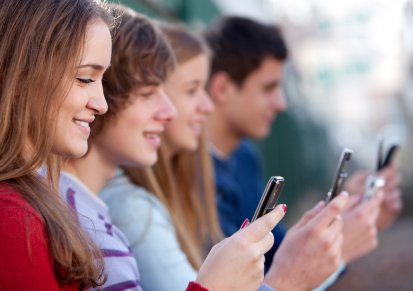A new study has found that college students who use their cell phones frequently had lower grades, higher anxiety and were less happy than other students.
For their study, Kent State University researchers Andrew Lepp, Ph.D., Jacob Barkley, Ph.D., and Aryn Karpinski, Ph.D., all faculty members in the university’s College of Education, Health and Human Services, surveyed more than 500 university students. Daily cell phone use was recorded, along with a clinical measure of anxiety and each student’s level of satisfaction with their own life — in other words, happiness. Finally, the students allowed the researchers to access their official university records to retrieve their college grade point average (GPA). All those surveyed were undergraduate students and were equally distributed by class (freshman, sophomore, junior and senior). In addition, 82 different majors were represented, the researchers noted.
An analysis of the data collected revealed that cell phone use was negatively related to GPA and positively related to anxiety, according to the researchers. They found that students who used their cell phones frequently tended to have a lower GPA, higher anxiety and lower satisfaction with life (i.e., happiness) relative to students who used their cell phones less often.
Earlier this year, a team led by Lepp and Barkley also identified a negative relationship between cell phone use and cardiorespiratory fitness. Taken as a whole, these results suggest that students should be encouraged to monitor their cell phone use and reflect upon it critically so that it is not detrimental to their academic performance, mental and physical health, and overall well-being or happiness, the researchers concluded.
The study was published in the journal Computers in Human Behavior.











